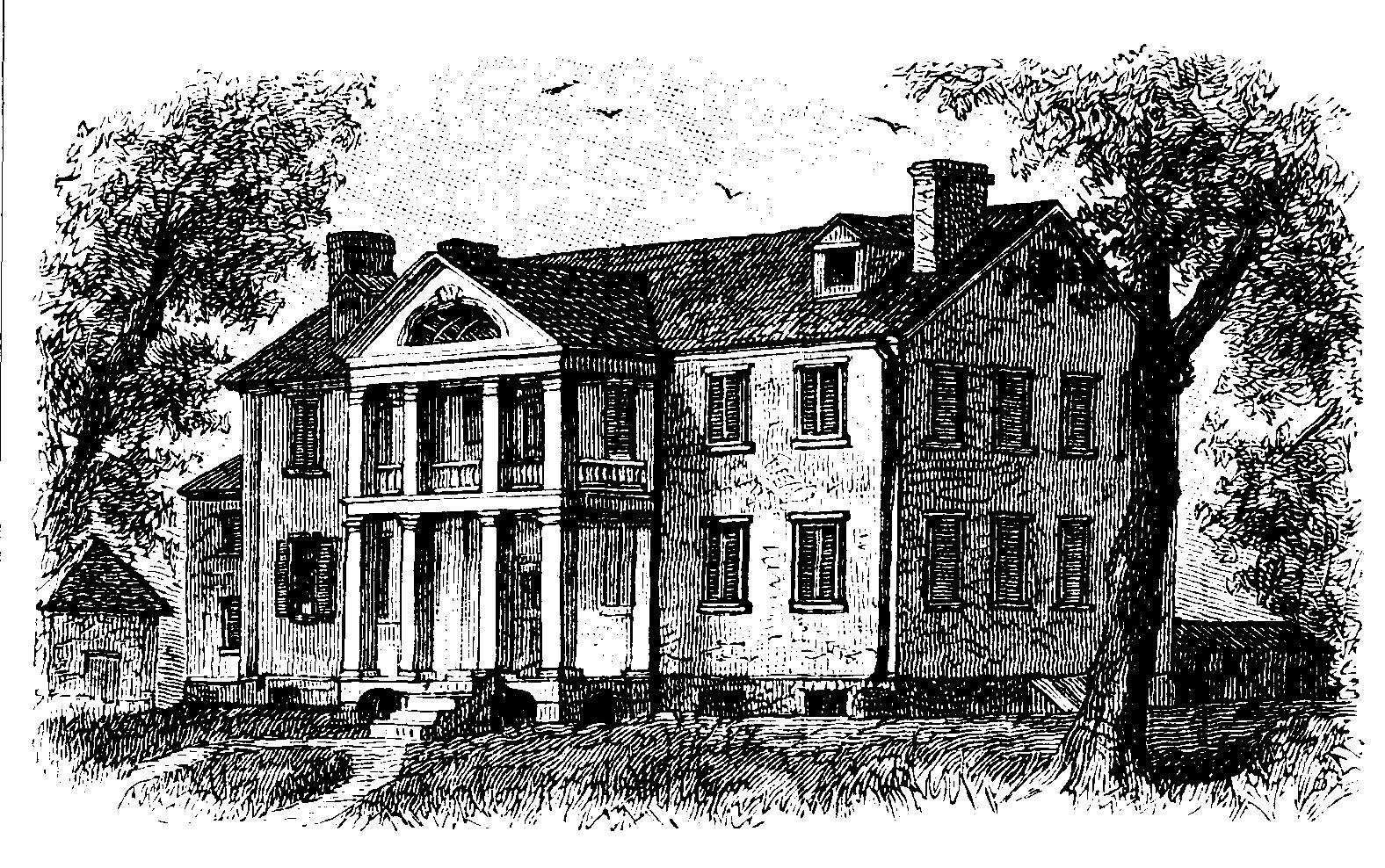He Was A Dastardly Dandy Too!
The very first "Historic Hottie!"
 |
| http://elektratig.blogspot.com/2011/01/john-randolph-of-roanoke-proceedings.html |
Andrew Jackson appointed him U.S. Minister to Russia, but was only there for a week when he returned home. Randolph was consistently drunk and high, and then became obsessed with Jackson. (Crawford)
John Randolph had fallen deeply and madly (literally from what I can tell!) in love with his cousin Nancy. When he found out that she was to marry another cousin, he met with her and told her that he hoped it wasn't true because he wasn't worthy of her. He left the plantation house where they were, "Bazarre," her sister and brother-in-law's home. Afterward, he came to despise Nancy possibly because she turned him down, or possibly because of the horrible scandal she was involved in. (A great story!) He treated her with contempt for the rest of his life.
John Randolph of Roanoke was one of the leaders of perhaps the most powerful family in the South from the late 1700's until at least the Civil War. He had served as the legislative leader in the Virginia Assembly for his cousin, Thomas Jefferson. History records that he ruled the Assembly with an iron hand - and a whip. He was the unquestioned master of a string of plantations in the Tidewater area of Virginia. Jonathan Daniel's, in his book The Randolphs of Virginia described the family as "America's foremost family," and Randolph as an orator and businessman "with few peers."
 |
| Photograph from the nomination quoted in part below. |
Although he competed stride for stride with other members of the Virginia aristocracy by amassing over 8,000 acres of land and 400 slaves, John Randolph had doubts about the morality of the use of slaves all of his life.
He was one of the first plantation owners to recognize the benefits of educating his slaves and treating them as humanely as possible. Randolph personally taught many of them to read and write. He also organized them into groups and gave each separate tracts of land for which they were to be responsible - an unusual approach in those days.
So, the man beat his enslaved privately, yet protested their enslavement publicly, and Randolph set them free upon his death. He was a man of contradictions. Being the daughter of an alcoholic myself, I would guess that he was cruel partly because of his addictions. They also came from a need for adulation and a superiority complex, in my opinion. Maybe it was because he was jilted by the woman he loved and still carried a jealousy for his rival? Or, some would say that he was a product of where he grew up. This could be argued in the fact that he tried to push through abolitionist positioning. Yet, he did not release his own slaves until he died....
Alan Pell Crawford, Unwise Passions. (New York: Simon & Schuster, 2000)
 |
| State's rights were argued in 1799, much sooner than what a lot of people realize. |
And, dueling.....
 |
| http://phw02.newsbank.com/cache/ean/fullsize/pl_012282013_0322_30900_525.pdf |
The above news article reads:
The editor of the Richmond Enquirer and John Randolph are
engaged in calling each other hard names. Mr. Randolph was the aggressor. The
following is from the Enquirer, elicited by the abuse of that unprincipled
libeler, John Randolph of Roanoke:
“We owe our acknowledgements to Mr.
John Randolph for several favours of the description. The time may come when we
shall return the debt with interest. He has calumniated us – how could we
expect to escape his remorseless vengeance? Why should he who has abused so
many others spared ourselves? Or, how could we, who despise his avaricious
spirit, and his unblushing rapacity of the public money, have calculated upon
his forbearance?”
In another place, in the same paper, Mr. R, Says:-
“A man, who has sinned against his
own conscience, and sunk himself in the opinion of all honorable patriots, by
plunging his arm into the public coffers, and disgracefully feeding in the
public crib, may falsely charge us with looking, only after the loaves and
fishes. We scorned to justify his rapacity – and the inextinguishable
resentment which we have provoked, may now vent itself in the bitterest and the
most unfounded reproaches.”
 |
| A little bit of a different story here than what Crawford accounts. |
On his death...
 |
| http://phw02.newsbank.com/cache/ean/fullsize/pl_012282013_0341_26452_731.pdf |
The above news article reads:
Miscellany.
JOHN RANDOLPH – ON HIS DEATH-BED.
The Christian Watchman publishes
the following account of the last moments of this eccentric man:--
Randolph
was near his end: Dr. - was sitting by
the table, and his man John (Juba was left at Roanoke) sitting by the bed in
perfect silence, when he closed his eyes, but for a few moments, and seamed by
his hard breathing to be asleep. But as the s… proved, it was the intense
working of his mind. Opening his failing eyes upon the Doctor, he said sharply,
“remorse” – soon afterwards, more emphatically, “REMORSE” –
presently, at the top of his strength he cried out “REMORSE” He then ended “Let me
see the word.” The Doctor, not apprehending his desire, made no reply.
Randolph then said to him with great energy, “Let me see the word. Show me
it in a Dictionary.” The Doctor, looking round, told him he believed there
was none in the room. “Write it then,” said Randolph. The Doctor
perceiving one of Randolph’s engraved card on the table, asked if he should
write on that. “Nothing more proper,” was the answer. The Doctor then
wrote the word in pencil under the printed name and handed it to Randolph. He
seized it, and holding it up to his eyes with great earnestness, seemed much
agitated. After a few seconds, he handed back the card, saying, “Write it on
the other side.” The Doctor did so, in large letters. He took it again and
after gazing upon it earnestly a few seconds returned it, and said, “Lend
John your pencil, and let him put a stroke under it.” The black man did so,
leaving it on the table. “Ah!” said the dying man, “REMORSE, you
don’t know what it means.” But added presently, “I cast myself on the
Lord Jesus Christ for mercy.”
Dr. – then
showed me the identical card. On one side was written “John Randolph of
Roanoke: Remorse,” and on the other side, “Remorse.”
Information on Randolph's house and lands:
In America, families spent gigantic amounts of money on their houses, "for no better purpose than to lure a few European fops and empty-headed parasites."
Mansion wits and fops repair,
To game, to feast, to saunter, and to stare,-
Thine eyes amid the crowd, who fawn and bend,
View many a parasite, but not one friend....
~ Peter Markoe
 |
| http://images.virtualology.com/ac/5/i/ency0089.jpg |
Following the prolonged Randolph - will litigation, Judge Wood Bouldirt
purchased the Middle Quarter of Roanoke; the Lower and Ferry Quarters along
with Randolph's other plantations passing to other owners. The Middle
Quarter, being most intimately associated with the great and eccentric
Randolph, attracted the attention of his contemporaries and successors who
recorded their impressions of the land and buildings....
The remaining cottage is an extremely simple one-story three-bay
structure with exterior-end brick chimneys. The building is covered by a
 |
| artist rendering |
steep gable roof and is
fronted
by a shed roof porch that is
framed into the
structure of the cottage.
Immediately to the west of
the second cottage is a
two-room, gable-end-front
frame structure that has not
been positively identified as dating from the Randolph occupancy. Behind these two build-
ings is an early smokehouse. On the lawn just to the west of the present
residence is a low rough boulder marking the site of John ~Randolph's first grave.
Roanoke Plantation still evokes the image of ~Randolph's time and
milieu, and suggests something of his personality. While one of his
"cabins" has been
Matoax was the real name of Pocohontas, & his boyhood home.
replaced by a later
larger
house, the second
(with its kitchen and
an additional
outbuilding),
remains in a good
state of preservation.The wood has been
cut back, but not eliminated. The roadway through the plantation has been improved, but
follows the original roadbed. At some distance from the house complex, there is another
early building; this may have been an overseer's house and is presently is unoccupied.
Later, he was not so hot (in my opinion), but he was still as much a dandy while in politics as he was on his deathbed. And, interesting, most of the locations on the web talk about how he was the great abolitionist man, but did not include his mean, drunken, opium addicted, weirdo side!
Was he a creapo? Or, was he just forlorn in love?
 |
| Wiki Images |







No comments:
Post a Comment